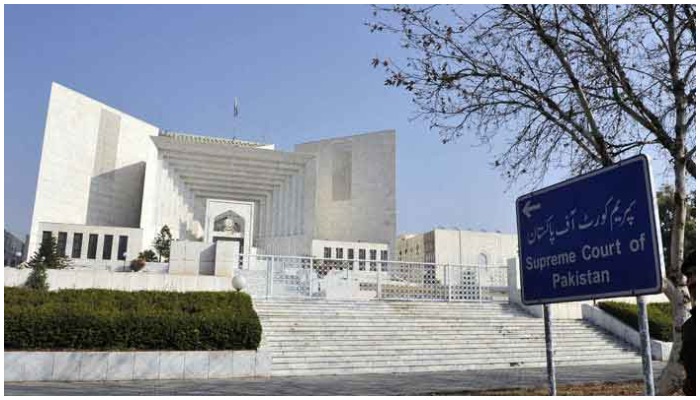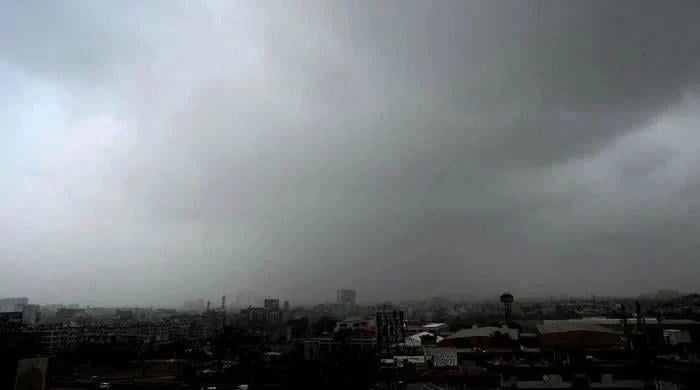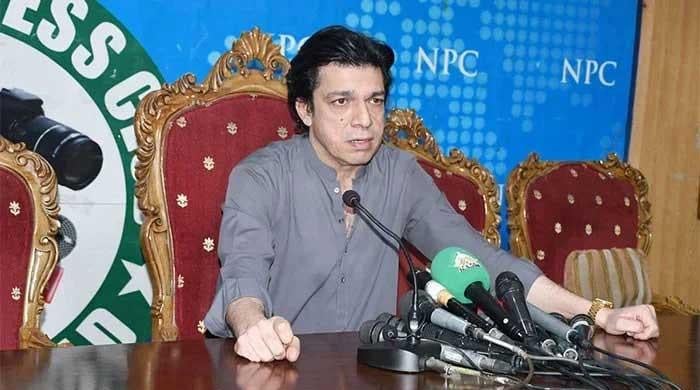'PM respects judges,' AGP tells SC after Imran Khan's statement on judiciary
PM Imran Khan had earlier said that ex-premier Nawaz Sharif has "divided Supreme Court's judges"
March 29, 2022

ISLAMABAD: Providing clarification to the Supreme Court of Pakistan on Prime Minister Imran Khan’s remarks about Nawaz wooing judges, Attorney General of Pakistan (AGP) Khalid Javed Khan apprised the top court that the premier had referred to the 1997 incident in his Kamalia rally speech.
A five-member larger bench of the apex court — headed by Justice Umar Ata Bandial and comprising Justice Muneeb Akhtar, Justice Aijazul Ahsan, Justice Mazhar Alam, and Justice Jamal Khan Mandokhel — resumed the hearing of the presidential reference seeking the interpretation of Article 63(A) of the Constitution of Pakistan and Supreme Court Bar Association's (SCBA) plea against political rallies in the federal capital today.
At the outset of today's hearing, AGP Khalid Javed Khan apprised the court that he spoke to PM Imran Khan over the apex court's disapproval of his remarks regarding the judges.
"I want to issue a statement on behalf of the prime minister in the court," he added.
"PM Imran Khan highly respects the judges and he had referred to the incident of wooing judges that happened in 1997 while addressing the Kamalia rally," the attorney general said.
The AGP added that the premier "believes in the impartiality of the judges and the independence of the judiciary."
During the previous hearing, CJP Bandial had warned the political leaders of the country against influencing the courts through political statements.
Continuing his arguments over Article 63(A) today, AGP Khan said that no member can claim their membership in the National Assembly if the assembly is dissolved.
"The Constitution says that the dissidents will not remain the members [of the assembly] and their seat will be considered vacant."
The reference also seeks clarification about the duration of dissidents' disqualification and how long they can be restricted from becoming MNAs.
"One condition could be that [dissidents] are disqualified for a duration equal to the time for which they were elected," AGP Khan said.
The election is not held on the seat of a member who defects in the fourth year after their election.
"The Constitution is silent over the members who defect in the fourth year after being elected for five years."
The attorney general contended that the members should be "disqualified for life over defection."
He, however, said that there is no issue if a member does not want to get elected after being de-seated but 62(1)f is applicable if a member wants to contest again after defecting from their party.
At this, Justice Mandokhel remarked that "at least disagreement should be allowed."
Responding to the remark, AGP Khan said that there is "room for disagreements but it is forbidden in some cases."
Justice Ahsan inquired whether a member should be disqualified if he is de-seated over defection from the party.
At this, Justice Akhtar observed that the Parliament can legislate to determine the duration for disqualification under Article 63(A).
"The Parliament can fix the duration for disqualification up to two to five years," Justice Akhtar said.
Whereas, Justice Ahsan questioned: "Why isn't the Parliament fixing the disqualification duration by amending Article 63(A)?"
At this, Justice Akhtar asked what should be the basis of a member's disqualification after being de-seated.
"Is defection enough as the basis for disqualification?" Justice Akhter inquired.
Sindh House incident
Meanwhile, CJP Bandial inquired about the action taken by Islamabad Advocate General over the Sindh House incident.
At this, the Islamabad AG informed the court that arrest warrants for the accused have been issued.
"We gave two days' permission to JUI-F but they staged a sit-in," he said.
At this, JUI-F counsel Kamran Murtaza said that "there is no sit-in and the rally has been concluded".
He said that the administration itself blocked the roads in the federal capital but it was not done by political activists.









